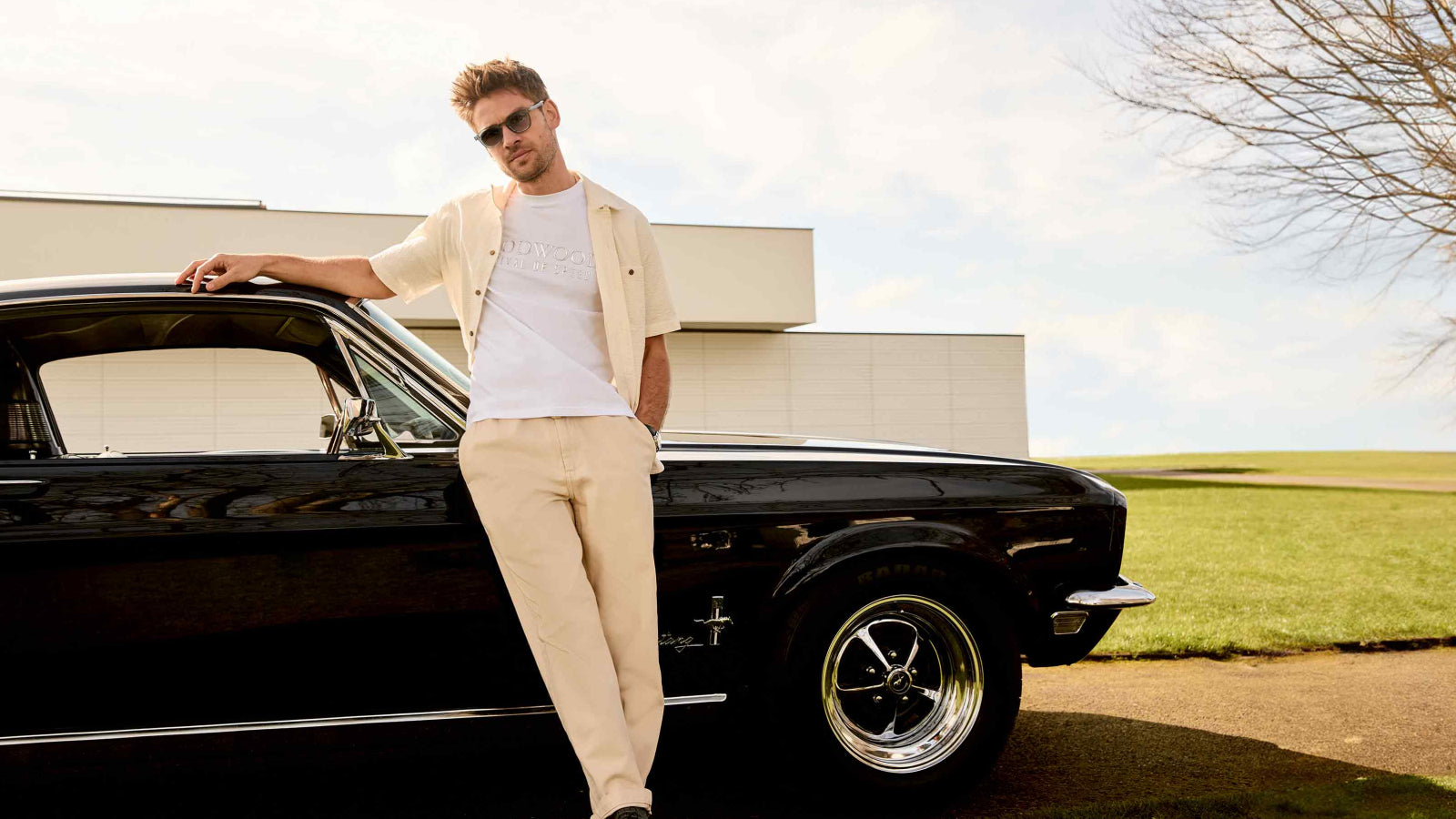The six best cars of Classic Car Sunday
Every Breakfast Club is a game of ‘which one would you buy?’ and the ensuing office arguments, but Classic Car Sunday undoubtedly features the toughest choices due to the sheer breadth of machinery that turns up.
From a Stanley Steamer to an early two-door Range Rover, the line-up is wonderfully bewildering. An early walkabout of the paddocks and start line saw us drawn to the following handful of cars. Apologies in advance if your favourite didn’t make it onto the list.

Alpine A310
Often dubbed the ‘French 911’, the Alpine A310 (sold here as a Renault because Sunbeam had the rights to the Alpine name) is actually far rarer than the Porsche and largely hand-built. The A310 debuted as four-cylinder replacement for the legendary, rally-winning A110 in 1971, two years before Renault bought out the marque entirely. The tubular steel backbone chassis was clothed in a beautiful one-piece fibreglass body but the car was generally regarded as underpowered.
Fast forward five years and the Alpine received the then-new PRV V6 engine, sitting behind the rear axle, increasing power by around 50 per cent but leading to decidedly tail-heavy handling characteristics. The styling was sharpened up by famed Citroën and Simca designer Robert Opron and it is his version which graces the Grid today.

Goggomobil TS 250 Coupe
Don’t you just want to give it a hug? We like to think we can identify most of the cars that turn up for Breakfast club but this one had us stumped until we saw the badge on the bootlid. Goggomobil was a range of microcars produced by farm machinery and scooter manufacturer Glas in Bavaria in the 1950s and ‘60s.
With all-round independent suspension and pre-selector gearboxes the cars were fairly advanced, although they were made with tiny two-stroke, straight-twin engines of up to 0.40-litres. The TS Coupe was introduced in 1957 and was on sale for the next 12 years. In total around 300,000 Goggomobils of all types were sold until BMW, which had bought the company in 1966 to take advantage of the many patents it held, ended production.

Fiat Dino Spider
Yes, there was one of the other Dinos on the grid but considering that the Fiat Dino Spider is rarer than its Ferrari counterpart and to my eyes prettier, it gets the nod here. The Fiat Dino Spider and Coupe came about in order to allow Enzo Ferrari to homologate his new V6 engine for Formula 2 racing. New rules meant the engine had to be derived from a production car and at least 500 had to be built, beyond Ferrari at the time.
So a deal was struck with Fiat for the engine to be used in a new front-engined sportscar. Ferrari had imaged that his firm would be building the units but Fiat had other plans, taking production in-house. The result is that every single engine, including those fitted to Ferrari’s own Dino, are stamped ‘Fiat’ on the engine block. This gorgeous Spider was designed and built by Pininfarina, with the coupe taken care of by Bertone. We would have welcomed either to the Grid.

Mini Moke
Just announced as returning to production as an EV, the Mini Moke was actually an early attempt by the British Motor Corporation (BMC) to rival Land Rover for military contracts. Based on the standard Mini but fitted with rugged body panels, the Moke was intended to be parachutable and light enough for four soldiers to carry it over any obstacles its low ground clearance couldn’t tackle.
Amazingly enough, a car that needed to be carried into battle didn’t find favour with the Army although the Royal Navy did consider them for use on the decks of aircraft carriers. The Moke found a second life however as simple, raffish transport on tropical islands such as Mauritius, Barbados and the Seychelles. It even became the official transport for the Macau Police.

Plymouth Barracuda
In the early 1960s one of the worst kept secrets in Detroit was Ford’s development of the Mustang using Falcon running gear to create a cheap, compact sporting model. Keen not to be caught on the hop Plymouth adopted the same approach with a fastback variant of its compact Valiant. ‘Panda’ had been mooted as a name but thankfully Barracuda prevailed.
The example here at Breakfast Club is a third-generation car, by which time it had shed its Valiant underpinnings and was based on the Chrysler E-body, shared with just the Dodge Challenger. The styling by John E. Herlitz brought together every established muscle car cue to create possibly the best-looking example of the breed from the ‘Coke bottle’ curves to the shaker hood scoop and raked stance. Under the long bonnet in this car is the famed Chrysler 440ci (7.2-litre) big block engine, producing somewhere in the region of 400 horsepower and a glorious noise.

Jensen-Healey
Keen to find a replacement for the Austin-Healey 3000, and urged on by US- dealer Kjell Qvale, Donald Healey approached Jensen which had been building the bodies for the open two-seater. A joint-venture was agreed and the car was styled in part by William Towns of Aston Martin Lagonda and Bulldog fame.
Following the 3000’s pattern of using an established platform, the Jensen-Healey largely used Vauxhall Firenza underpinnings but its engine was found to be lacking. Colin Chapman offered the new Lotus twin-cam, multivalve four-cylinder unit which produced a healthy 146PS (107kW) and became the first DOHC, 156-valve engine to go into mass production. Intended to slot between the TR6 and ageing E-type, the Jensen-Healey’s formula seemed spot on but it launched in an era of oil crises and strike action. In its four years on sale just a little over 10,000 were made which still makes in the bestselling Jensen of all time, comfortably beating the Interceptor.
List
Classic Car Sunday
Breakfast Club
Breakfast Club 2022





